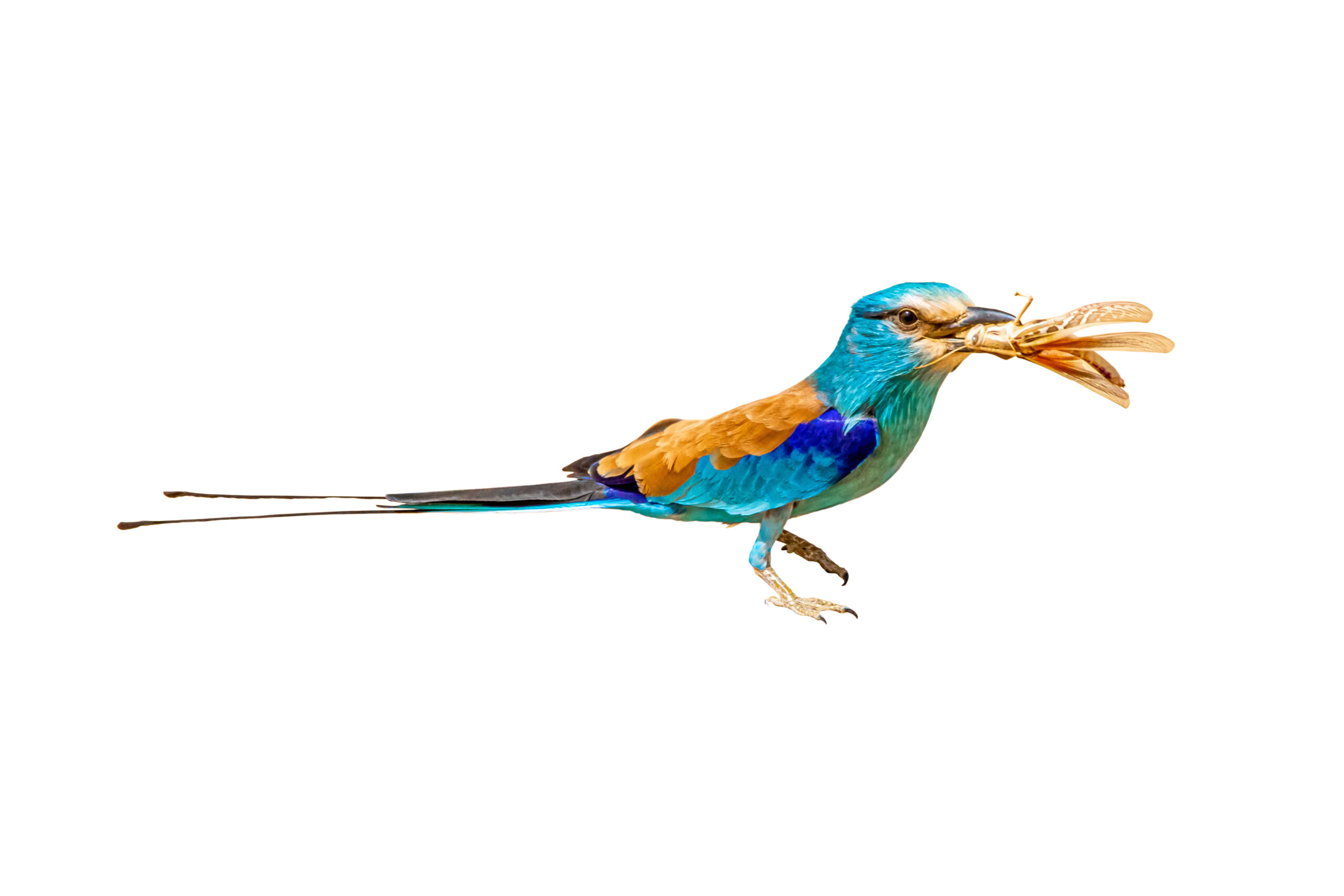Destroying locusts with chemicals is often unnecessary. Harmonious cooperation between birds and fungi works just as well, says PhD student Wim Mullié. And it is certainly better for the environment.
Don’t kill your allies is the telling title of the thesis with which the 68-year-old toxicologist Wim Mullié graduates with a PhD this week. The title says it all, really. This thesis is the end product of the longest-running doctoral research project in the history of the university. The first article in the thesis was published in 1993.
If it wasn’t for the coronavirus, it might have taken even longer for him to get his PhD, says Mullié, speaking from his home in Dakar, Senegal. Being in lockdown at home enabled him to find time to finish writing at last, with the encouragement of his supervisor Tinka Murk, professor of Marine Animal Ecology (and a toxicologist too). ‘I definitely want that mentioned. Over the past 20 years, she has given me tremendous encouragement to write this thesis.’
The crux of Mullié’s message is clear. Birds are indispensable assistants in the battle against locusts. Chemical pest control affects birds too. So don’t use it. ‘The idea of my thesis is to bring the role of birds back into the picture,’ says Mullié. ‘Birds have always been our natural allies in the battle against locusts. Birds eat locusts. Which was why birds were revered in several ancient cultures, such as the Egyptians with the ibis. But we forgot about birds after World War II when the use of chemical pesticides took off.’
Fungus
Mullié saw that a different approach was possible when he got involved in research on the effect of the organic pesticide Green Muscle. This preparation, developed in the late 1990s, owes its effectiveness to its spreading of the fungus Metarizhium acridum, which is deadly to locusts. ‘During that study we saw that birds very actively ate locusts that had been sprayed with this. And the birds – storks, Montagu’s harriers and falcons – were not harmed in the least. In fact, bird numbers grew and subsequently, the birds kept locust numbers below the threshold for economic damage. When chemical pest control is used, we see the opposite happen. Birds sometimes die in large numbers or they migrate elsewhere for lack of food. That is because the chemicals are not selective, and they kill other insects as well. What is more, once the chemicals had done their work, the locusts returned, but the birds stayed away.’
Mullié discovered another phenomenon too: that birds mainly eat the largest locusts. In the case of desert locusts, these are the females. ‘It is a question of energy. If you take the biggest, you don’t have to work as hard for every unit of energy you absorb,’ explains Mullié. That makes the birds twice as effective for combatting locusts. ‘Because they are larger, the females eat more. So it saves vegetation if the females get eaten. Plus, you hamper reproduction this way.’
There is another reason, too, why the combination of Green Muscle and birds is a success. Infected insects are easier to catch. That is because of their changed behaviour, explains Mullié. ‘A locust that feels that it is sick raises its body temperature by sitting in the full sun high up in the vegetation, a phenomenon known as ‘behavioural fever’. Through its behaviour, the insect generates a kind of artificial fever. The fungus grows optimally between 27 and 38 degrees Celsius. When the temperature goes up beyond 38 degrees, growth slows down. The locust makes smart use of this, but there is one disadvantage: in the full sun, locusts are more visible to birds.’
Politics
The big advantage of organic pest control is obvious: it spares the environment. And, according to Mullié, it is no more expensive than chemical pest control. But in the face of a real plague, he does think you need chemicals. ‘I think their main role is in prevention, in the phase before locusts start swarming, and before they undergo a metamorphosis from solitary to group animals. If that metamorphosis takes place undisrupted, it gets harder and harder to do anything about them. Sadly, it has become more and more difficult to take preventive action because of the security situation in the Sahel countries and countries like Yemen.’
For this reason, Mullié sees locust plagues as a primarily political problem. ‘In general, people wait far too long before taking action. Until it is too late. Then you get a panic reaction and people reach for the pesticide sprayers, because politicians want to see locusts dropping dead out of the sky. Without changing that mentality, without using organic pest control, and above all, without actively combatting land degradation to bring back the birds and reduce the locusts’ habitat, there is a risk that the next major plague is just a repetition of the last one.’

 Birds eat mainly the largest locusts, the females. That is good for pest control in two ways. ‘Because they are larger, the females eat more. So it saves vegetation if the females get eaten. And you hamper reproduction.’ Photo: Wim Mullié
Birds eat mainly the largest locusts, the females. That is good for pest control in two ways. ‘Because they are larger, the females eat more. So it saves vegetation if the females get eaten. And you hamper reproduction.’ Photo: Wim Mullié 

